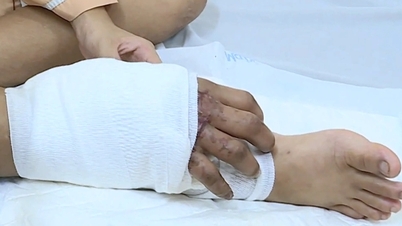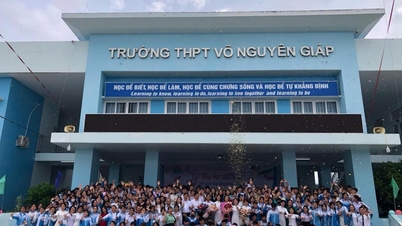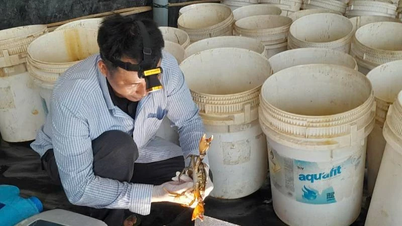This could be the most effective treatment yet for a type of hereditary breast cancer that is difficult to treat. And it could also potentially be applied to other cancers such as ovarian, prostate and pancreatic, researchers said, according to science news site Scitech Daily.
Innovative Strategy of Test 2 Improvement
For current treatments – which include chemotherapy to shrink the tumor and immunotherapy, before surgery to remove the tumor – the three years after surgery are crucial because there is the highest risk of recurrence or death.
The new method is a breakthrough invention because it can save the patient's life during this dangerous three-year period.
The study, led by Cambridge University Hospitals and the University of Cambridge, included 84 patients from 23 public health facilities across England.
The new method - including chemotherapy, olaparib pills 48 hours later, then surgery, only 1 patient relapsed after 3 years and 100% of patients survived. Illustration: AI
Researchers used a new cancer treatment that included two improvements:
- Chemotherapy combined with the cancer drug olaparib before surgery. Olaparib is a targeted cancer treatment pill (now available on the UK National Health Service).
- Calculate the time to take olaparib for maximum effectiveness.
The research team found that the most effective time to take olaparib was 48 hours after chemotherapy.
This time period may give the patient's bone marrow time to recover from chemotherapy, and also allow the treatment drugs to more easily reach the tumor cells, the study authors explain.
Remarkably, the most dramatic result was that every patient given the new therapy survived the crucial three-year period, with a survival rate of 100%.
Specifically, among 39 patients who used the new method (including chemotherapy, 48 hours later taking olaparib pills, then surgery), only 1 patient relapsed after 3 years and 100% of patients survived, according to Scitech Daily.
Meanwhile, in the control group (chemotherapy and surgery only without olaparib), the three-year survival rate was 88%. Of the 45 patients in this group, nine relapsed, and six died.
The study authors say this may be the most effective therapy to date for breast cancer. The approach also has potential for use in other cancers, including ovarian, prostate and pancreatic.
Lead researcher Professor Jean Abraham said: “It is rare to see a 100% survival rate in a study of this type, for such an aggressive cancer. We are extremely excited about the potential of this new approach, as this is a very difficult cancer to treat.
The team is planning the next phase, which will be larger in scale.
Source: https://thanhnien.vn/dot-pha-phuong-phap-dieu-tri-ung-thu-moi-dat-ty-le-100-18525053119544966.htm




![[Photo] Prime Minister Pham Minh Chinh chairs a meeting of the Government Standing Committee on overcoming the consequences of natural disasters after storm No. 11](https://vphoto.vietnam.vn/thumb/1200x675/vietnam/resource/IMAGE/2025/10/09/1759997894015_dsc-0591-jpg.webp)



![[Photo] Prime Minister Pham Minh Chinh chairs the Conference to deploy the National Target Program on Drug Prevention and Control until 2030](https://vphoto.vietnam.vn/thumb/1200x675/vietnam/resource/IMAGE/2025/10/09/1759990393779_dsc-0495-jpg.webp)






















































































Comment (0)